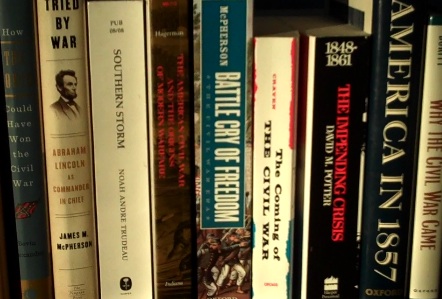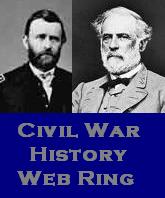Exploring Causes of the Civil War – Part I: Introduction
I’d like to begin a new series of posts on the much debated topic of the causes of the American Civil war. Let today’s post serve as its introduction. I’ll attempt in the series to address two questions. The first is whether economic interests, political agitation, and the cultural differences between North and South did more to bring about the Civil War than the issue of slavery. The second is whether the American Civil War could have been avoided. Was it inevitable? Underlying both questions is the matter of causation of the war. If there was a singular, definitive reason for it the task would be easier. But deliberation over its cause has continued for almost a century and a half and will no doubt carry on into the future with little hope of achieving clear answers. Scholar Kenneth M. Stampp summarized the challenges of the quest well. [Image of Dred Scott right.]
slavery. The second is whether the American Civil War could have been avoided. Was it inevitable? Underlying both questions is the matter of causation of the war. If there was a singular, definitive reason for it the task would be easier. But deliberation over its cause has continued for almost a century and a half and will no doubt carry on into the future with little hope of achieving clear answers. Scholar Kenneth M. Stampp summarized the challenges of the quest well. [Image of Dred Scott right.]
As one reflects upon the problem of causation one is driven to the conclusion that historians will never know, objectively and with mathematical precision, what caused the Civil War. Working with fragmentary evidence, possessing less than a perfect understanding of human behavior, viewing the past from the perspective of their own times, finding it impossible to isolate one historical event to test its significance apart from all others, historians must necessarily be somewhat tentative and conjectural in offering their interpretations.[i]
He concluded, and with this, I whole heartedly agree, that even though the ongoing debate over the causes of the war remains inconclusive, the effort of examination brings increased clarity.[ii]
More in the next post.
Copyright © 2007 Rene Tyree
[i] Kenneth M. Stampp, ed. The Causes of the Civil War, (New York: Simon and Schuster, 1991), 17-18.[ii] Ibid., 18.
Photo of Dred Scott. Prints and Photographs Division. Reproduction Number: LC-USZ62-5092

























































Rene,
As the econcmy, politics, and culture of the south were inextricably tied to the institution of slavery, I think your first question is unanswerable.
What caused the war? Secessison. What caused secession? I prefer to let the seceded states themselves answer that question. You can find their reasoning(s) in Dew’s “Apostles of Disunion”.
Sometimes questions, and their answers, are simpler than some would like us to believe.
Regardless, you’ve hit upon the ancient and sure-fire method of getting hits!
Harry Smeltzer
December 10, 2007 at 4:33 am
Rene,
IMHO, as noted above by Harry and echoed by most modern historians, slavery was the fundamental cause of the CW. The immediate cause was Lincoln’s election which the South saw as the first step towards abolition. Since the South’s economy and virtually everything else depended on or was related to slavery, any threat to slavery was a threat to the South’s existence.
The CW or something equally as horrific was inevitable. The South depended on slavery and plantation agriculture while the North and most of the nations of the world found it abhorrent–the South had to have it and the North could not live with it so as Lincoln found out later in the war, there could be no compromise. The compromises and band aids the Founding Fathers and their heirs made and developed in the early years of the country could no longer be effective.
Larry F.
Laurence Freiheit
December 11, 2007 at 5:07 pm
Harry and Larry,
Thanks for your thoughtful comments. You’ve hit upon several of the key issues these questions are designed to get people talking about. As you might imagine, these were fodder for hot debate in my class!
I don’t disagree with either of you but let me pose this question. Would you consider the war to be, at its heart, about a struggle for “freedom and rights” as both were perceived in the North and South? Wasn’t the impetuous of war the battle over national versus state sovereignty?
As always, your comments are anxiously awaited?
Rene
Rene Tyree
December 12, 2007 at 1:19 am
Rene,
National v. state sovereignty–sort of. As some historians have said and as you’ve mentioned (Jeffersonian v. Hamiltonian models), and I agree, the South was an earlier version of America with its personal and local character while the North was moving towards a paradigm of an industrial zeitgeist which required not only cooperation among the states but more power and control in the hands of the central government.
So national v. state is part of the picture but not, IMO, the primary causational factor for the war but rather a necessary part of the directions the two parts of the country had taken. Slavery was the primary part of the South’s economy, without it, the South as it existed for generations, would not survive. The South’s resistance and reaction to increased national power was due to its fear that the North’s increasing influence on national affairs would limit slavery and then eventually lead to its extinguishment. As we saw during Reconstruction, the South fought as hard as it did during the war to ensure that white supremacy and states rights would effectively limit the effects of emancipation and continue the plantation agriculture necessary for the South to rebuild.
Larry F.
Laurence Freiheit
December 13, 2007 at 4:21 pm
Larry,
Excellent points. I agree strongly with your assessment of the threat felt by southern slaveholders. As I mention in my latest post, those fears contributed to an environment ripe for violence.
I’m looking forward to the class on “Reconstruction” BTW. Assume you’ve already had that one.
Good discussion. Appreciate your input.
Rene
Rene Tyree
December 20, 2007 at 4:05 am